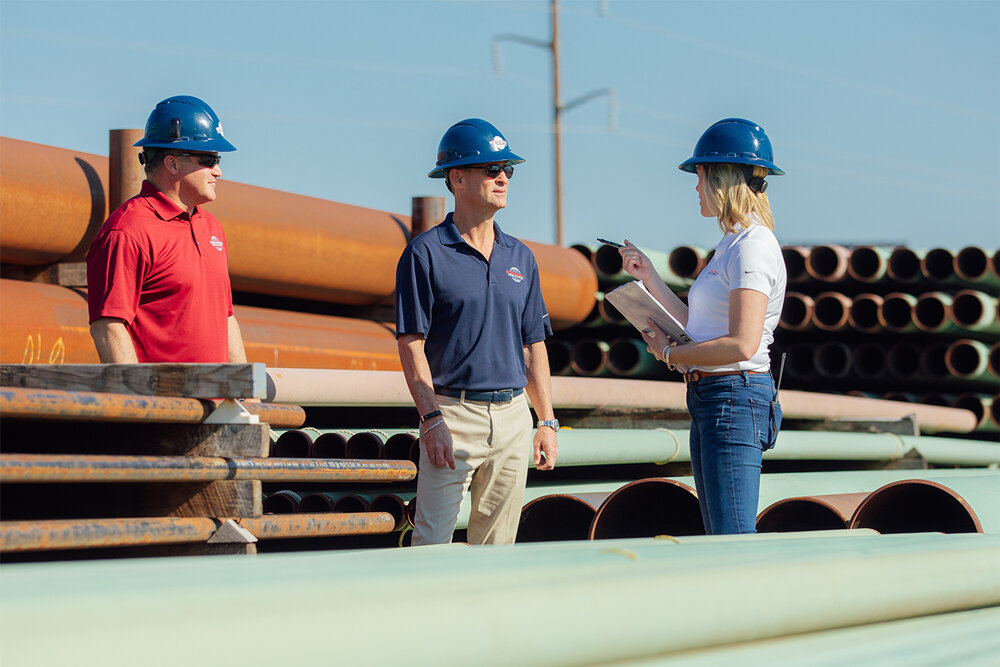Steel pipe is prized for its ability to handle high pressure, resist corrosion, and withstand extreme temperatures. They’re used in everything from transporting fluids and gases to structural applications. Choosing the right type of steel pipe can improve efficiency, safety, and the lifespan of your project.
4 Common Types of Steel Pipe
1. Carbon Steel Pipe
- What They Are: Made primarily of iron and carbon, these are known for their strength and durability.
- Key Benefits:
- High Strength: Perfect for heavy-duty applications like oil and gas pipelines.
- Cost-Effective: A more affordable option compared to other steel types.
- Versatility: Suitable for transporting liquids, gases, and structural uses.
- Applications: Commonly used in construction, energy production, and industrial processing.
2. Stainless Steel Pipe
- What They Are: Made with chromium and other alloying elements, stainless steel pipe offers excellent resistance to rust and corrosion.
- Key Benefits:
- Corrosion Resistance: Ideal for environments exposed to moisture or chemicals.
- Longevity: Withstands wear and tear, requiring minimal maintenance.
- Aesthetic Appeal: Offers a polished, professional look for architectural uses.
- Applications: Used in water distribution, food processing, and chemical transport.
3. Alloy Steel Pipe
- What They Are: Contain added elements like manganese, nickel, and molybdenum to enhance performance.
- Key Benefits:
- High Heat Resistance: Performs well in high-temperature environments.
- Enhanced Durability: Stronger and more wear-resistant than carbon steel.
- Customizable Properties: Different alloys can be tailored to specific needs.
- Applications: Often found in power plants, refineries, and high-pressure systems.
4. Galvanized Steel Pipe
- What They Are: Coated with a layer of zinc to prevent corrosion, these are durable and cost-effective.
- Key Benefits:
- Corrosion Protection: Zinc coating extends the life of the pipe in wet or outdoor environments.
- Low Maintenance: Requires minimal upkeep over its lifespan.
- Affordability: Combines durability with a competitive price point.
- Applications: Popular in plumbing, fencing, and outdoor construction projects.
How to Choose the Right Steel Pipe
When selecting a steel pipe for your project, consider these factors:
- Application: Determine the pipe’s primary use, such as fluid transport, structural support, or corrosion resistance.
- Environment: Evaluate exposure to moisture, chemicals, and extreme temperatures.
- Budget: Balance upfront costs with long-term value and maintenance needs.
- Expert Guidance: Consult with a trusted supplier like International Pipe to ensure you choose the right material for your project.
Why International Pipe?
International Pipe provides a wide selection of steel pipe to meet the diverse needs of our customers. From carbon steel to galvanized options, we’re committed to delivering high-quality products that stand the test of time. Our knowledgeable team can guide you through the selection process to ensure you get the best pipe for your project.
Explore International Pipe’s full range of steel pipe and find the perfect solution for your needs.

